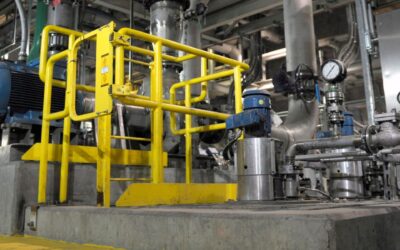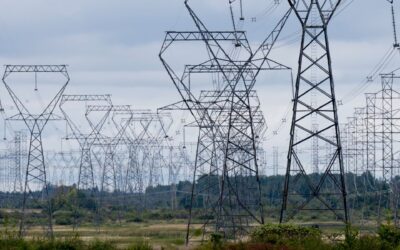Initially published in the Toronto Star.
The Inflation Reduction Act has now been signed into law— and Canada suddenly finds itself in the unfamiliar position of playing climate catch-up with our southern neighbour.
The bill’s climate provisions will drive U.S. greenhouse gas emissions down 41 per cent below 2005 levels by 2030 — and it does this through a series of measures that incentivize Americans to make, sell, and buy the vehicles, heat pumps, wind turbines, and solar panels that will affordably and efficiently power their homes and businesses through the energy transition.
The implications of this powerful collection of policies not only transform U.S. law and capital markets to drive the clean energy transition, they’re also a game changer for Canada. Here are four ways the Inflation Reduction Act will accelerate Canada’s Net Zero transition.
Canada’s 2030 ambitions are now aligned with America’s 2030 realities.
Before the Inflation Reduction Act’s adoption, the U.S. had ambitious greenhouse gas reduction targets, but no clear federal policy support for the necessary action to get there. Sound familiar? That’s because Canada’s climate change policy is also a work in progress.
Our federal government is currently consulting on a new Clean Electricity Standard, a cap on emissions from the oil and gas industry, more stringent regulations on reducing methane leaks, and improvements to carbon pricing: all elements that the Canadian Climate Institute has calculated are necessary for Canada to achieve its own goals.
Moving expeditiously with these initiatives is critical if we want to keep pace with the giant economy to our south.
Capital markets are now unleashed, flipping Canada’s competitiveness challenge on its head.
Investors and capital markets need policy certainty before they will make the big bets in clean energy or climate tech. Clearer policy direction in Canada has helped, but global capital markets have been waiting for the U.S. to make its move. They need no longer wait.
The longstanding concern among businesses and financial institutions in Canada has been about moving too fast on climate policy, putting it at a competitive disadvantage to the U.S. That narrative has now been flipped on its head: the real danger now is not moving fast enough.
If Canada doesn’t keep up, there’s a risk that flows of talent and capital could be pulled south of the border. Even as market opportunities in North America get bigger, Canadian companies may not have the financial and human capital required to scale and succeed.
Canadian governments have an important role to play here, too. The Canadian Climate Institute recently highlighted a range of policies that can help Canadian companies compete in North American capital markets — from growing more startups to commercializing the next big anchor companies.
Smart climate policy is now one of the best antidotes for increased cost of living.
It’s “not called the Inflation Reduction Act for nothing,” Princeton engineering professor Jesse Jenkins recently pointed out: “Rising energy costs are the biggest driver of inflation right now. The Inflation Reduction Act would directly reduce annual U.S. energy expenditures by at least ~4% by 2030 in our modeling. That equates to a savings of nearly $50 billion annually for households, businesses, and industry and translates to hundreds of dollars in annual energy cost savings for U.S. households.”
With Canadians also feeling the pinch of inflation and high gas prices, policymakers here should be poring over the Inflation Reduction Act to see how we might unlock similar energy and efficiency savings for Canadian families.
Canadian industry has specific new opportunities.
Unlike an earlier draft of the bill that would have locked out Canadian auto manufacturers from electric vehicle incentives, the Inflation Reduction Act recognizes that Canada is a key partner in the success of America’s clean energy transition. It includes Canadian products and components (including Canadian-built vehicles and critical minerals for batteries) as eligible for the full $7,500 EV rebate.
Canadian automakers have been preparing for exactly this moment, committing billions to retool their facilities to make EVs. These investments are targeting the entire supply chain, from procuring the necessary minerals and metals within Canada to developing technologies that can help manage and recycle the influx of batteries in the waste system. Now, with clear direction from the US, Canada can move even faster to transform one of its largest economic engines.
The passage of the Inflation Reduction Act represents a watershed moment for climate policy. All of a sudden, the U.S. is fully engaged in the net zero transition. Now Canada needs to deliver the policies that will ensure we’re not left in their wake as we ramp up our own transition.








